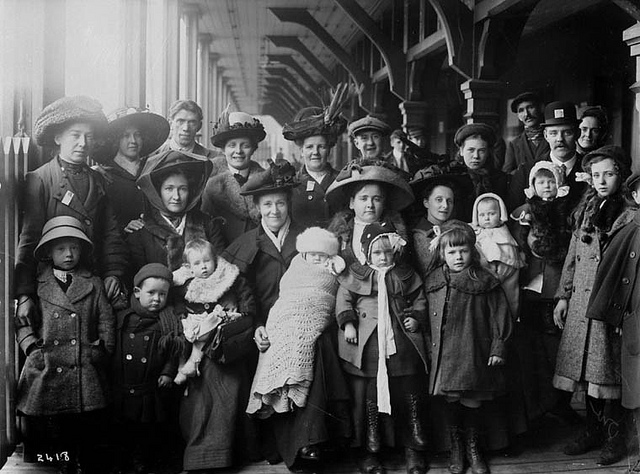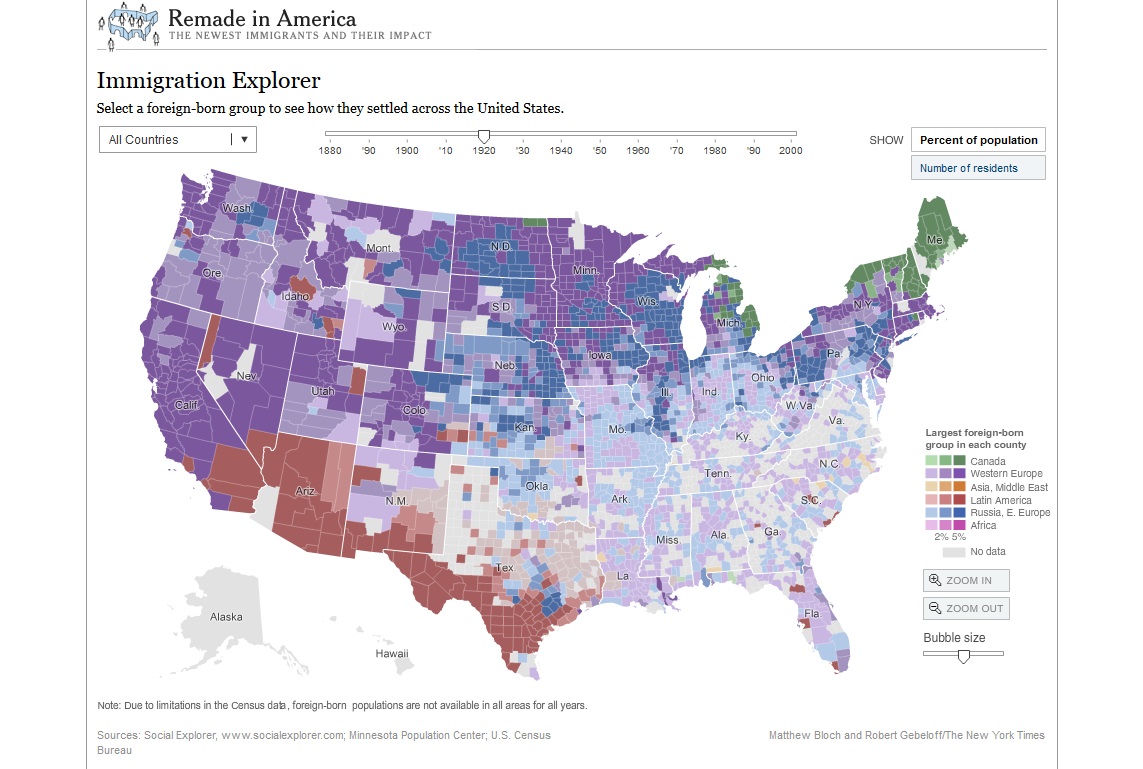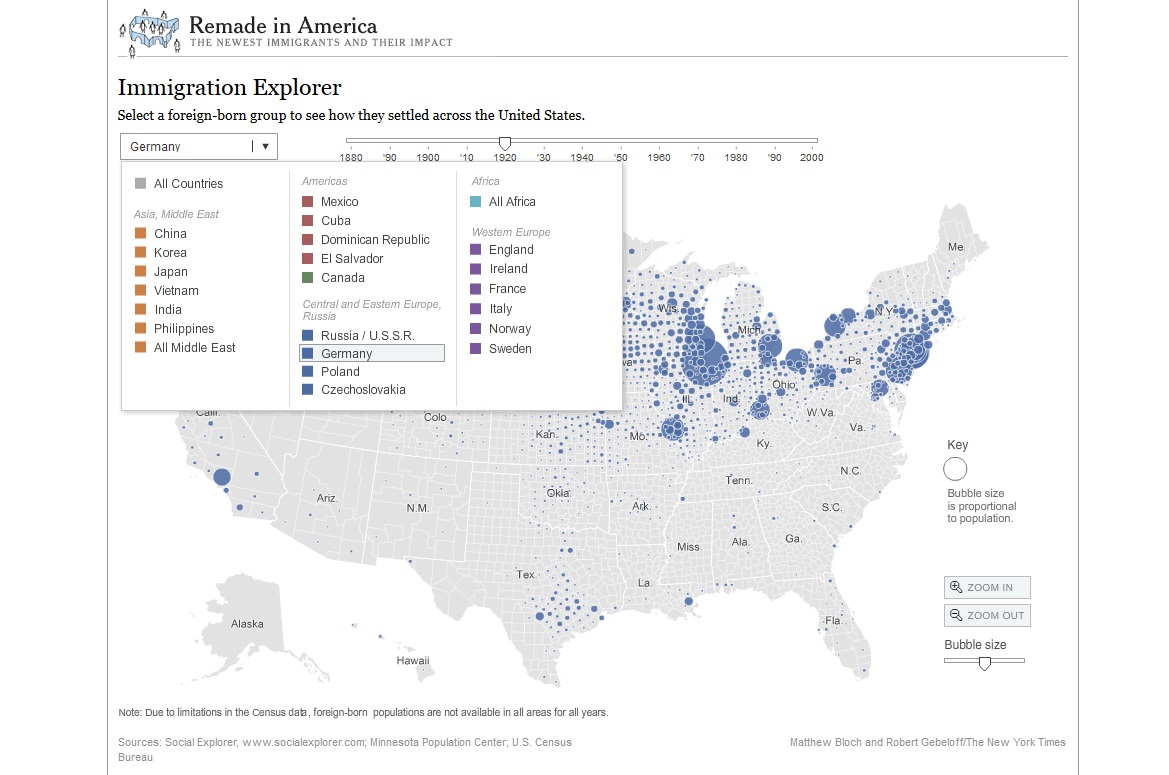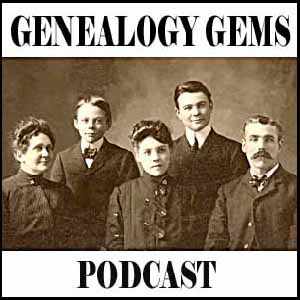by Lisa Cooke | Nov 20, 2013 | 01 What's New, FamilySearch, Immigration
 Nearly a million indexed records and images in the Brazil, Rio de Janeiro, Immigration Cards, 1900-1965, collection are among newly-posted data in FamilySearch’s ever-growing free digital archive. The cards were issued by Brazilian consulates around the world and presented upon arrival in Brazil by visitors and immigrants. They contain the immigrant’s name, where he or she came from, the date and place of birth, and the parents’ names.
Nearly a million indexed records and images in the Brazil, Rio de Janeiro, Immigration Cards, 1900-1965, collection are among newly-posted data in FamilySearch’s ever-growing free digital archive. The cards were issued by Brazilian consulates around the world and presented upon arrival in Brazil by visitors and immigrants. They contain the immigrant’s name, where he or she came from, the date and place of birth, and the parents’ names.
This is a pretty significant time period for Brazilian immigration. Brazil’s population was about 17.4 million in 1900–and it nearly doubled in the following two decades. By 1940, Brazil housed over 41 million people, and by 1960, over 70 million.
Most immigrants to Brazil since slavery was abolished in 1888 came from Italy, most significantly the areas of Vêneto, Campânia, Calabria, and Lombárdia. Germany and Japan sent their share of immigrants, too.
That’s not all that’s new on FamilySearch, though. Check out these other indexed and imaged records:
| Collection |
Indexed Records |
Digital Images |
Comments |
| Brazil, Rio de Janeiro, Immigration Cards, 1900–1965 |
334,188 |
615,026 |
Added indexed records and images to an existing collection. |
| Canada Census, 1911 |
1,227,603 |
0 |
New indexed record collection. |
| Canada, Ontario, Toronto Trust Cemeteries, 1826–1989 |
96,228 |
0 |
Added indexed records to an existing collection. |
| England, Cheshire Non-conformist Records, 1671–1900 |
14,673 |
0 |
Added indexed records to an existing collection. |
| Hungary, Civil Registration, 1895–1980 |
0 |
40,475 |
Added images to an existing collection. |
| Indonesia, Jawa Tengah, Kebumen, Naturalization Records, 1951–2013 |
0 |
14,330 |
Added images to an existing collection. |
| Indonesia, Jawa Tengah, Wonogiri District Court Records, 1925–2013 |
0 |
137,465 |
Added images to an existing collection. |
| Italy, Trieste, Trieste, Civil Registration (Tribunale), 1924–1939 |
0 |
97,505 |
Added images to an existing collection. |
| U.S., Indiana, Marriages, 1811–1959 |
468,724 |
0 |
Added indexed records to an existing collection. |
| U.S., Louisiana, New Orleans Passenger Lists, 1820–1945 |
51,232 |
0 |
Added indexed records to an existing collection. |
| U.S., North Carolina, Wilmington and Morehead City Passenger and Crew Lists, 1908–1958 |
88,345 |
0 |
Added indexed records to an existing collection. |
| United States Public Records Index |
132,330,416 |
0 |
Added indexed records to an existing collection. |
by Lisa Cooke | Oct 14, 2013 | 01 What's New, Canadian, FamilySearch, Immigration

Mixed group immigrants, Quebec
Over a million indexed records and images for Canadian passenger lists (1881-1922) are among newly-announced records now searchable at FamilySearch.org.
The database includes records for Canadian ports–Quebec City, Halifax, St. John, North Sydney, Vancouver and Victoria–as well as U.S. ports for passengers who reported Canada as their final destination.
Before this time period, travel between the U.S. and Canada was common. But it was not always officially recorded because there were no border crossing stations on land. During the time period covered by these records, nations on both sides of the border became concerned about the impact of this invisible migration. Official border crossing record-keeping began in 1895. (See a database at Ancestry.com).
Here’s a tip: If you have immigrant ancestors who landed in the United States during this era but you haven’t found their passenger records, consider the possibility that they arrived via Canada. They would have avoided the increasingly strict monitors at the port gates of entry to the U.S. “golden door.”
Here’s a full list of recent updates to FamilySearch.org:
|
Collection
|
Indexed Records
|
Digital Images
|
Comments
|
| Argentina, Buenos Aires, Catholic Church Records, 1635-1981 |
539,210 |
0 |
Added indexed records to an existing collection. |
| Argentina, Capital Federal, Catholic Church Records, 1737-1977 |
682,002 |
0 |
Added indexed records to an existing collection. |
| BillionGraves Index |
407,422 |
407,422 |
Added indexed records and images to an existing collection. |
| Canada Passenger Lists, 1881-1922 |
1,673,051 |
61,099 |
Added indexed records and images to an existing collection. |
| Denmark, Church Records, 1484-1941 |
0 |
2,399,826 |
New browsable image collection. |
| Germany, Prussia, Brandenburg, Landkreis Ostprignitz-Ruppin, Miscellaneous Records, 1559-1945 |
0 |
9,569 |
New browsable image collection. |
| Italy, Campobasso, Civil Registration (State Archive), 1809-1918 |
0 |
2,171,641 |
New browsable image collection. |
| Italy, Napoli, Fontana, Parrocchia di Santa Maria della Mercede – La Sacra, Catholic Church Records, 1659-1929 |
0 |
54 |
Added images to an existing collection. |
| U.S., Illinois, Northern District (Eastern Division), Naturalization Index, 1926-1979 |
0 |
214,094 |
Added images to an existing collection. |
| U.S., Ohio, County Marriages, 1789-1994 |
980,427 |
951 |
Added indexed records and images to an existing collection. |
by Lisa Cooke | Aug 27, 2013 | 01 What's New, Immigration, Maps
Do you ever wonder why your immigrant ancestors to the U.S. settled in a particular location, especially if it wasn’t the port city they landed in? The New York Times website has a tool that may shed light on your question.
This very cool interactive map displays the settlement patterns of U.S immigrants by nationality since 1880. As you can see from the screen shot below, you can click on ten-year increments to see how things stood at one point in time, or click across several to see how settlement patterns changed.

You can also click on several individual countries for more specific data, as you see here:

Of course, you may still be scratching your head about WHY your folks went a particular place. But if you see they were part of a larger settlement of Poles in the Pittsburgh region in the early 1900s, for example, you’ll know to look for regional and ethnic histories that can give you more “backstory.” You may also discover that they were a definite minority in their new hometown, which hints at a different kind of immigrant experience. In the quest to understanding our immigrant ancestors’ experiences, every clue helps!
You can learn more about another terrific immigration resource by listening to the free  Genealogy Gems Podcast episode 120. Noted author Steve Luxenberg (Annie’s Ghosts) shares a free online tool that he used to help solve his own family history mystery!
Genealogy Gems Podcast episode 120. Noted author Steve Luxenberg (Annie’s Ghosts) shares a free online tool that he used to help solve his own family history mystery!
by Lisa Cooke | Sep 7, 2012 | 01 What's New, British, Immigration, Records & databases
 If you have found the passenger list for your British ancestor in the Ellis Island database, you’ve only gotten your hands on part of the story. There are outgoing passenger lists from the UK to the US available and www.Findmypast.com has added them to their offerings.
If you have found the passenger list for your British ancestor in the Ellis Island database, you’ve only gotten your hands on part of the story. There are outgoing passenger lists from the UK to the US available and www.Findmypast.com has added them to their offerings.
Findmypast has announced the expansion of its U.S. records to include World War I Draft cards and outgoing passenger lists from the UK to United States, among others.
Findmypast.com has also made news recently with the announcement of a new partnership with Federation of Genealogical Societies to preserve and digitize local U.S. records from genealogical societies around the country including newspapers and obituaries, bible records, cemetery records and birth, marriage and death records.
New records that have been added or will be added during 2012 include:
· World War I Draft Cards
· Outbound UK Passenger Lists (BT27)
· Genealogical society materials
· 1940 Census records
The new records join nearly 1,000 existing unique and international record collections including:
· England Royal Household Records
· Most complete England, Wales and Scotland census collection available online
· British Army service records
· Unique Irish prison and court records
· Irish military and rebellion records
· Millions more records and specialist records that cannot be found anywhere else and many sets dating back to 1200 AD
by Lisa Cooke | Aug 24, 2012 | 01 What's New, FamilySearch
 The following was announced today by FamilySearch:
The following was announced today by FamilySearch:
More than 160,000 volunteer indexers made the 1940 U.S. Census available for searching in just five months. The project was an unprecedented success that dramatically illustrated what the genealogical community can accomplish when united in a common cause.
Now many volunteers are turning their attention to the U.S. Immigration & Naturalization Community Project, an indexing effort to make passenger lists, naturalization records, and other immigration related records freely searchable online. Hundreds of thousands of North American volunteers are expected to contribute over the next 18-24 months, focusing initially on passenger lists from the major US ports.
Individuals, societies and other groups that want to participate should visit familysearch.org/immigration to learn more.
 Nearly a million indexed records and images in the Brazil, Rio de Janeiro, Immigration Cards, 1900-1965, collection are among newly-posted data in FamilySearch’s ever-growing free digital archive. The cards were issued by Brazilian consulates around the world and presented upon arrival in Brazil by visitors and immigrants. They contain the immigrant’s name, where he or she came from, the date and place of birth, and the parents’ names.
Nearly a million indexed records and images in the Brazil, Rio de Janeiro, Immigration Cards, 1900-1965, collection are among newly-posted data in FamilySearch’s ever-growing free digital archive. The cards were issued by Brazilian consulates around the world and presented upon arrival in Brazil by visitors and immigrants. They contain the immigrant’s name, where he or she came from, the date and place of birth, and the parents’ names.









